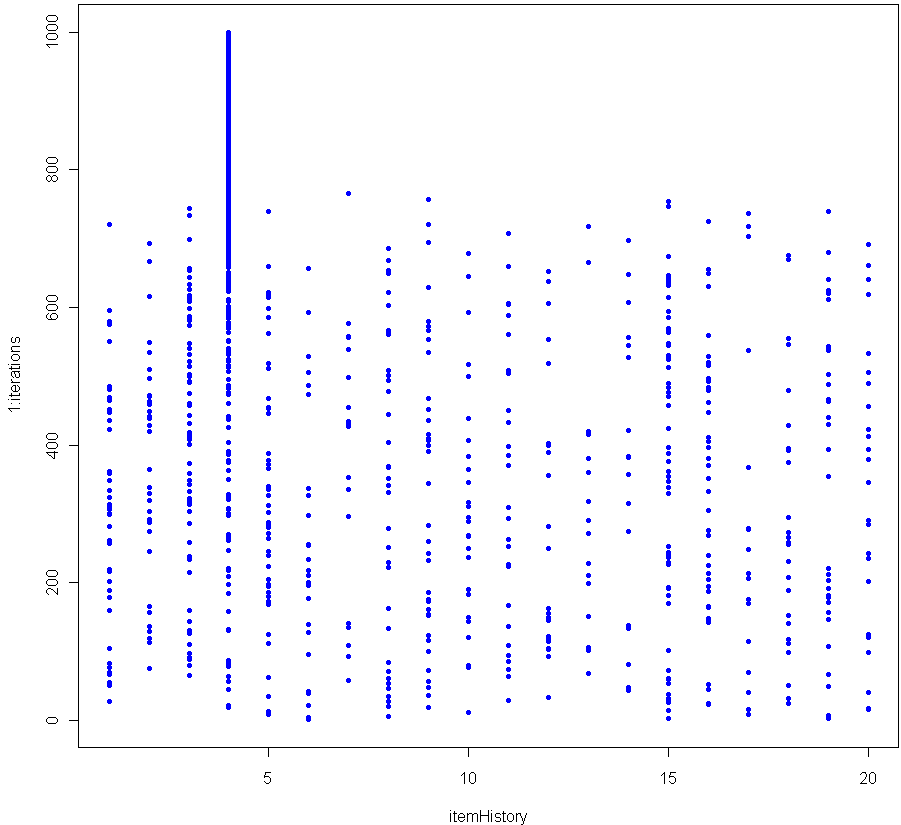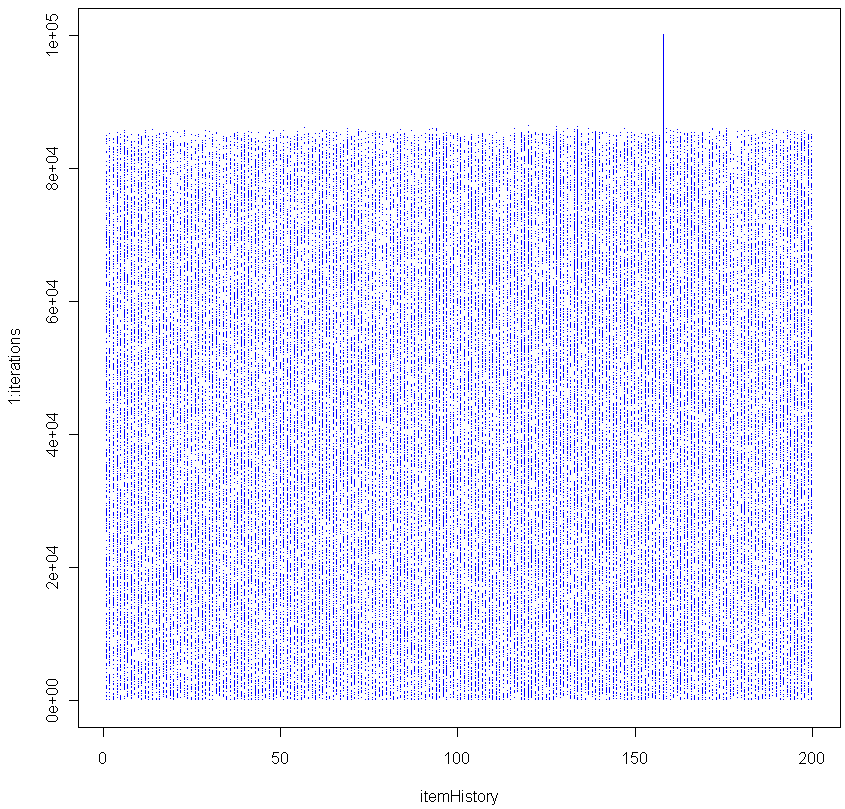Toss one hundred different balls into your basket. Shuffle them up and select one with equal probability amongst the balls. That ball you just selected, it’s special. Before you put it back, increase its weight by 1/100th. Then put it back, mix up the balls and pick again. If you do this enough, at some point there will be a consistent winner which begins to stand out.
The graph above shows the results of 1000 iterations with 20 balls (each victory increases the weight of the winner by 5%). The more balls you have, the longer it takes before a clear winner appears. Here’s the graph for 200 balls (0.5% weight boost for each victory).
As you can see, in this simulation it took about 85,000 iterations before a clear winner appeared.
I contend that as the number of iterations grows, the probability of seeing a Chosen One approaches unity, no matter how many balls you use. In other words, for any number of balls, a single one of them will eventually see its relative weight, compared to the others, diverge. Can you prove this is true?
BTW this is a good Monte Carlo simulation of the Matthew Effect (no relation).
Here is the code in R to replicate:
numbItems = 200
items = 1:numbItems
itemWeights = rep(1/numbItems,numbItems) # Start out uniform
iterations = 100000
itemHistory = rep(0,iterations)
for(i in 1:iterations) {
chosen = sample(items, 1, prob=itemWeights)
itemWeights[chosen] = itemWeights[chosen] + (itemWeights[chosen] * (1/numbItems))
itemWeights = itemWeights / sum(itemWeights) # re-Normalze
itemHistory[i] = chosen
}
plot(itemHistory, 1:iterations, pch=".", col="blue")
After many trials using a fixed large number of balls and iterations, I found that the moment of divergence was amazingly consistent. Do you get the same results?


